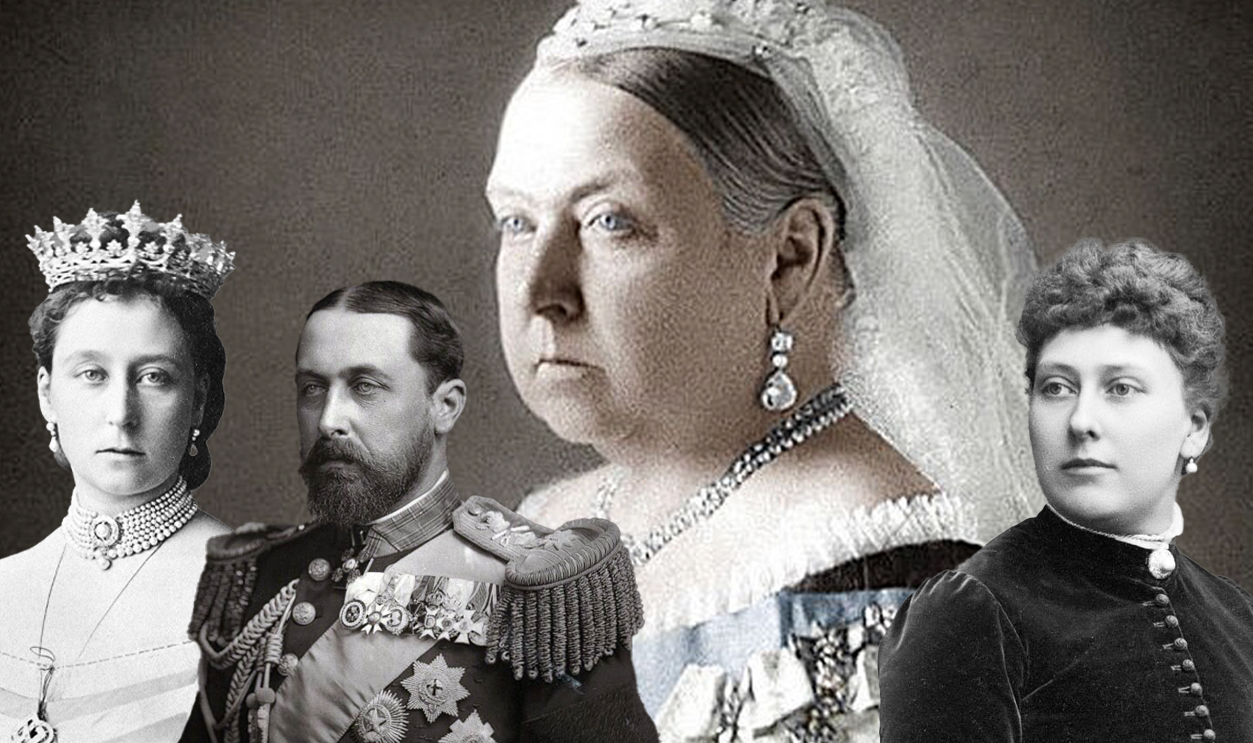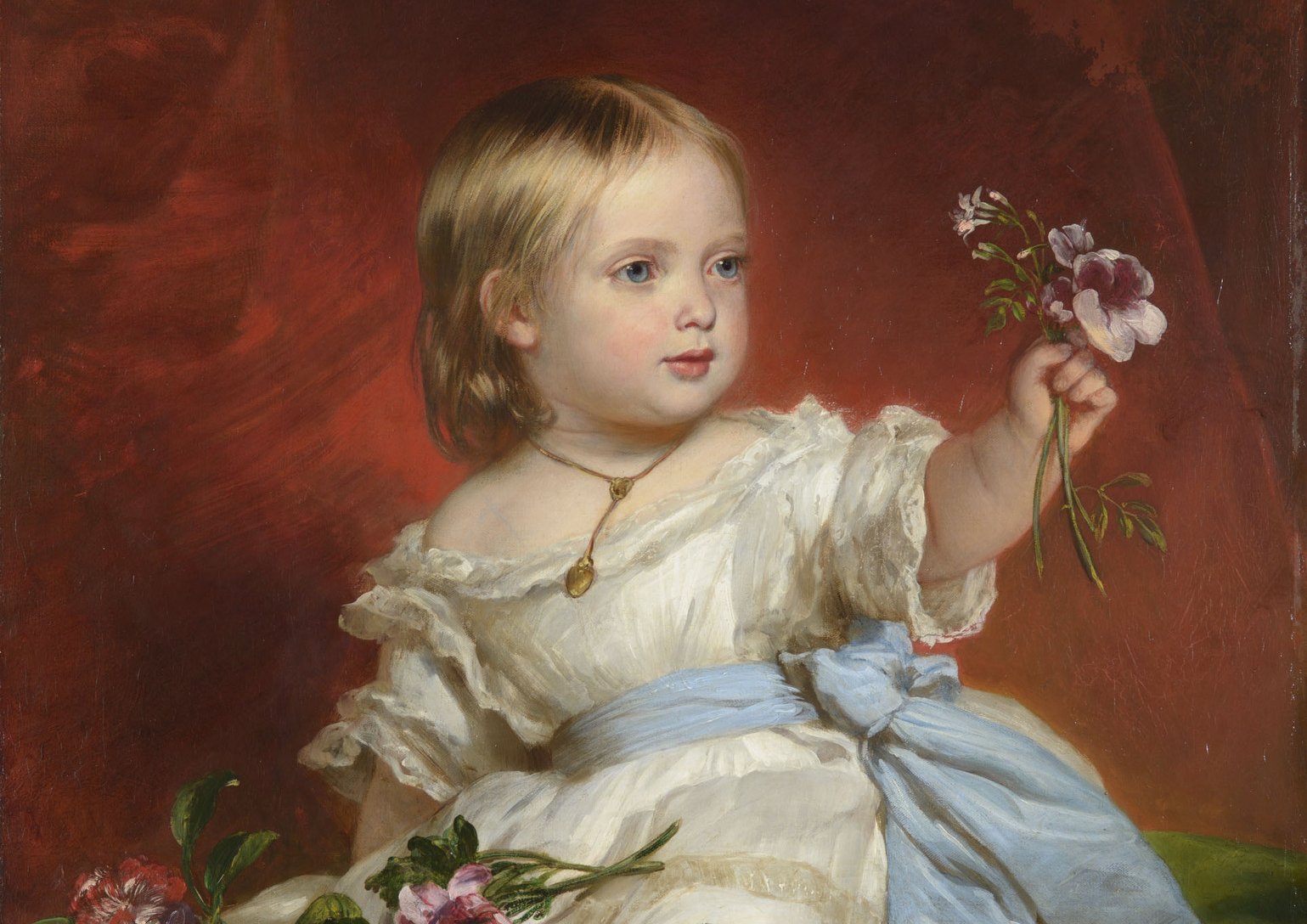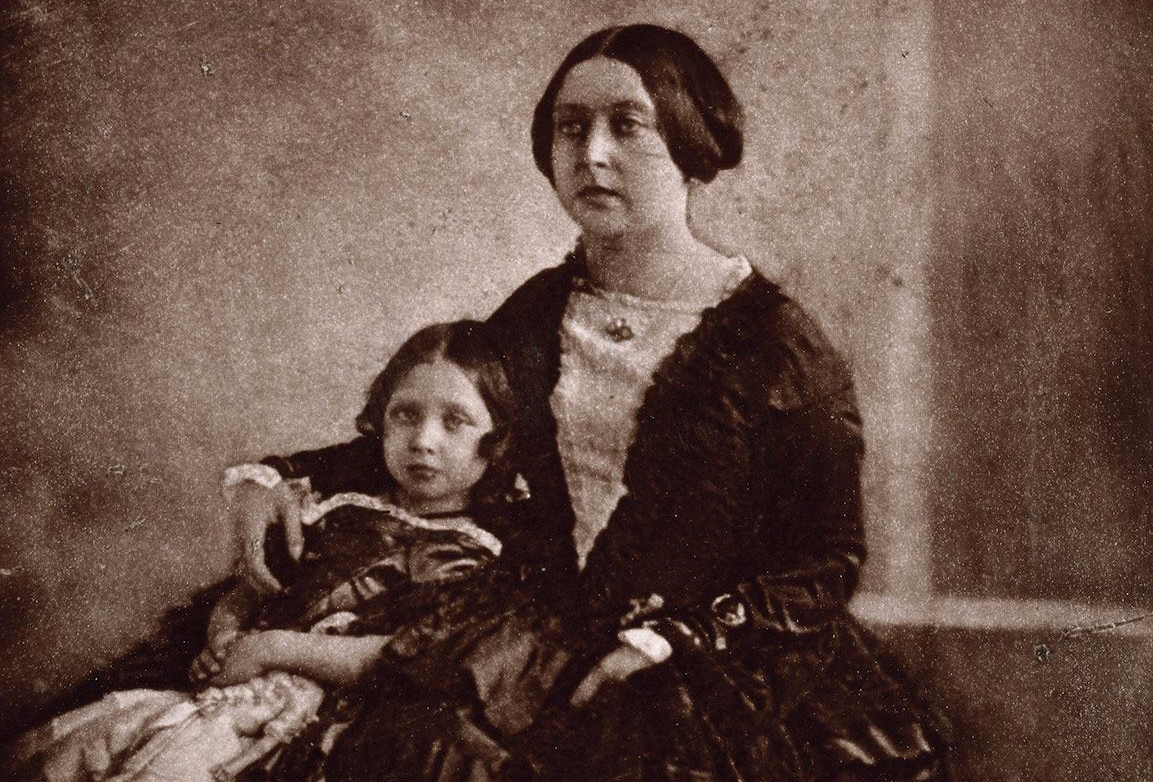The Many Children Of Queen Victoria
Until the passing of the late Queen Elizabeth II, Queen Victoria was England’s longest-reigning monarch. However, she also had nine children, all of whom made advantageous marriages that spread England’s connections across the globe. Let's take a look at their gilded—yet sometimes utterly tragic—lives.

Victoria
Queen Victoria’s eldest child was a daughter that they named after herself. Known as Victoria, Princess Royal, she was born in November 1840. Victoria, however, was locked out of the crown.

Victoria
Despite being the eldest child of the reigning monarch (a queen at that), Victoria could not inherit. The law stated that the crown must go to the first male heir, regardless of whether a daughter was born first. But don’t feel too sorry for Victoria.

Victoria
Victoria may not have been able to inherit her mother’s crown. However, that did not mean she didn’t rise to become “Queen” in another way. She made an advantageous marriage.
Victoria
Victoria married Prince Frederik William of Prussia in January 1858. Frederik was nine years older than her. However, he inherited the Prussian throne following the passing of his childless uncle.
Victoria
In January 1859, Victoria gave birth to a son, Wilhelm II. Wilhelm II eventually became the German Emperor, securing England’s connection to that throne.
Edward
Queen Victoria’s second child was a son, Edward. Due to the already-mentioned law, Edward became his mother’s heir, despite being her second-born child. Though, he would have a long wait.
Edward
Thanks to Victoria’s long reign, Edward would have to wait 60 years before he became King Edward VII. He remained heir apparent during that time and often struggled under the pressure of it.
Edward
Queen Victoria had many strict rules for her son. Prince Albert, Edward’s father, had concerns about Edward’s ability to lead and therefore was demanding in his own way. However, it was another matter that would strain Edward and Victoria’s relationship.
Edward
Prince Albert passed shortly after having a conversation with Edward over an unsuitable relationship he was having with an actress. Victoria would blame Edward, in part, for Albert’s passing for the rest of her life.
Edward
In 1863, Edward married Princess Alexandra of Denmark. The couple would have six children, though Edward was not a loyal husband. Still, as a king, he was credited for reviving England following the darker, final years of his mother’s reign.
Alice
Edward was followed by another sister in April 1843. Princess Alice of the United Kingdom would go on to live a life of luxury and tragedy.
Alice
As with her siblings, Alice would use her position within the royal family to make an advantageous marriage. She married the Grand Duke of Hesse-Darmstadt, Louis, in 1862.
Alice
Together, Alice and Louis would have seven children. Through these children, she’d find her way back to the English throne. She was the late Prince Philip’s great-grandmother. She was also passionate about her projects.
Alice
Alice was greatly involved in philanthropic work. She would go on to become interested in nursing. She’d meet Florence Nightingale; though she’d also meet an unfortunate end.
Alice
Despite having seven children, not all survived. Many of Alice’s children caught diphtheria; Alice herself caught the disease. She passed on the same day as her father, 17 years later.
Alfred
Keeping with the pattern that had developed so far, Victoria’s fourth child was a son. Alfred, Duke of Saxe-Coburg and Gotha came into this world in August 1844. He lived an interesting life.
Alfred
Alfred spent many years in the Navy before rising in the ranks. When King Otto of Greece abdicated the throne in 1862, Alfred was asked to accede to the Greek throne—his mother did not approve.
Alfred
That was not the only drama in Alfred’s life. While in Australia in 1868, Alfred had a close call. Henry James O’Farrell, an Irishman, attempted to end his life, though ultimately failed.
Alfred
Alfred would go on to marry Grand Duchess Maria Alexandrovna, the daughter of the Russian emperor. Although Alfred and Maria were married in St Petersburg, they lived in England. It was in England that they welcomed several children until Alfred passed in 1900.
Helena
After Alfred came Helena, Queen Victoria and Prince Albert’s fifth child and third daughter. Although born Helena, she was often called “Lenchen”.
Helena
Helena would marry Prince Christian of Schleswig-Holstein. Prince Christian was 15 years Helena’s senior, though it did not seem to hamper their marriage.
Helena
Helena and Christian had five children together. They also had a marriage that lasted longer than many of her siblings.
Helena
In 1916, Helena and Christian celebrated their 50th wedding anniversary. According to the Royal Collection Trust, they were the first of Queen Victoria’s children to do so.
Helena
Helena would go on to live another seven years past that anniversary. Helena passed in 1923 at the age of 59.
Louise
Princess Louise, Duchess of Argyll was the first of Victoria’s children to break the pattern of boy-girl that had been developing. She was born in March 1848 and was well received.
Louise
It was reported by many that Louise was a delightful baby. One of the Queen’s ladies was quoted as saying, “The delicious baby … a delight and beautiful creature”.
Louise
Unlike her siblings, Louise made a distinction for herself outside of “the royal family”. Louise was born with an artistic nature and she took to it as she grew.
Louise
Louise attended classes at The National Art Training School. She would design several notable statues, becoming the first member of the royal family to work as a public artist.
Louise
Louise married in March 1971. Her husband was John Campbell, Marquis of Lorne. The couple spent significant time in Canada. Louise would outlive her husband by 25 years.
Arthur
Queen Victoria and Prince Albert’s seventh child was a son. Born in May 1850, Arthur also held the honorary titles of Duke of Connaught and Strathearn.
Arthur
It seemed that Arthur’s calling would find him early in life. He was reported to have been interested in the military from an early age. He would not take long to join.
Arthur
At the age of 16, Albert enrolled in the Royal Military College. He would go on to have a long career in this field.
Arthur
Arthur served across the globe. His service included time in South Africa, Canada, Ireland, Egypt, and India. He would be appointed Governor General of Canada.
Arthur
Following in the footsteps of his elder sister, Arthur would also marry a member of the Prussian royal family, Princess Louise Margaret. The couple had three children.
Leopold
Although not the baby of the family, Prince Leopold was Queen Victoria and Prince Albert’s youngest son. This may have contributed to his position in the family. Though, it was not the only reason.
Leopold
It was not long after Leopold’s birth that he was diagnosed with a concerning disease. He had hemophilia, a condition that reportedly came from Victoria’s side of the family.
Leopold
Unlike his siblings who bore distinctly English names, Leopold owed his name from another quarter. He was named after King Leopold I of Belgium.
Leopold
Leopold was married in 1882. He married Princess Helene Friederike. He was almost 30 years old by the time he had gotten married.
Leopold
Leopold and Princess Helene had two children. However, Leopold would not meet his second-born. He passed in France before the birth of his second child.
Beatrice
The youngest child of Queen Victoria would be Princess Beatrice of the United Kingdom. Beatrice would go on to have an intense relationship with her mother.
Beatrice
As the youngest child, Beatrice spent several years with her mother following the passing of her father. This seemed to affect her relationship with her mother greatly.
Beatrice
Beatrice is generally considered Queen Victoria’s favorite child. However, that may not have been a good thing. Reportedly, Queen Victoria opposed Beatrice marrying.
Beatrice
Even when it was announced Beatrice planned to marry, Victoria ignored the news for months. She eventually “allowed it”. However, Beatrice and her new husband, Prince Henry of Battenberg, had to live with Victoria.
Beatrice
Beatrice and Henry had four children together. Queen Victoria outlived Henry. Beatrice remained living with her mother until her mother’s passing.
You May Also Like:
Princess Beatrice Lived A Royal Horror Story
Edward VII Was The Infamous Playboy King
The Sad Tale Of Prince Leopold, Queen Victoria's Doomed Son
Sources: 1